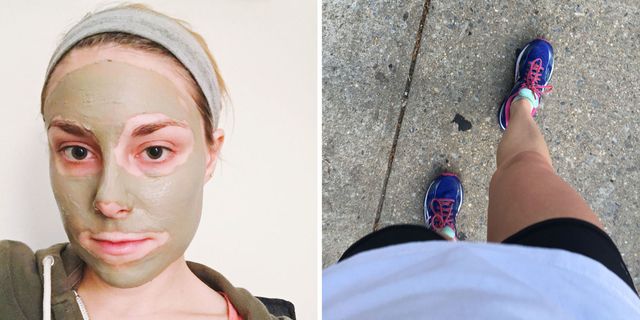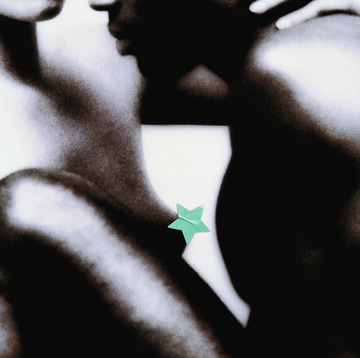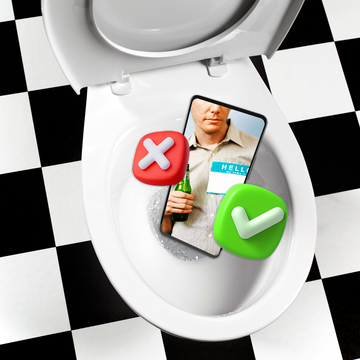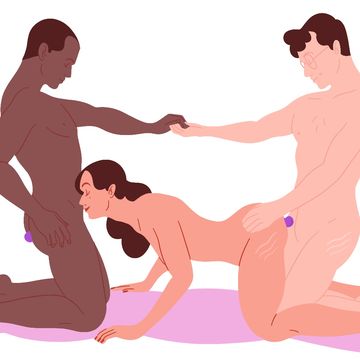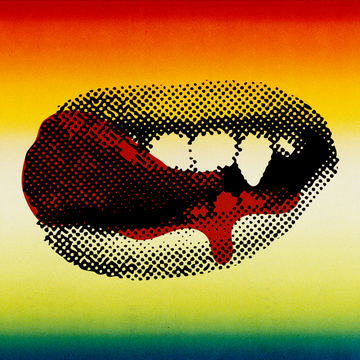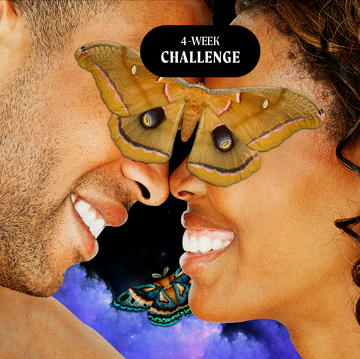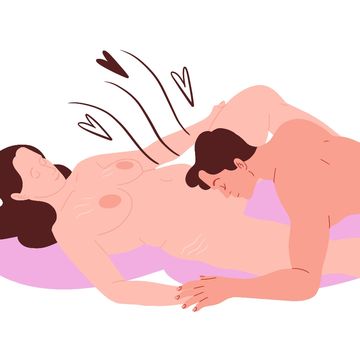One summer when I was about 9 or 10 — old enough to get the concept of "hotness" but still too young to really get it — I was laying out on a lounge chair at the community swimming pool when my friend turned to me and said something I'll never forget: "High maintenance is high quality."
In the context of whatever deranged, preteen girl conversation we were having that day at the pool, she meant that putting effort into your appearance and demeanor made you more valuable as a woman. Even before I was old enough to wear makeup or shave my legs, I recognized her phrase as yet another layer in the narrative I was already used to hearing; the narrative that yes, you can be high-maintenance as a woman, but only if no one else can tell just by looking at you. In other words, to be a high-quality girl is to be beautiful, thin, healthy, radiant, and smart with no visible signs of effort. If they can see you trying, you're trying too hard. And there's nothing less hot than trying too hard.
For as long as I've been able to read the headlines on the covers of women's magazines, I've recognized that being pretty is good, but being effortlessly pretty is best. For proof, just see how much people (men) fetishize the "no-makeup" look, or how many female celebs feel pressure to lie and say they never work out or diet. It's an idea that's existed seemingly forever, and it comes from the same, sexist line of thinking that urges women to never be "too" anything — loud, opinionated, big, small, funny, needy, confident, or, worst of all, caring. For women who want to be perfect without looking like they care about being perfect, there are complicated tips for attaining effortless wavy hair, expensive makeup products that promise not to look like makeup, and effortless diets that don't look like diets.
But all of this is, of course, bullshit. Everyone is trying and effortlessness is a myth — and a really bad myth at that, because it tells you to shrink your hard work to the point that it disappears. I love to try. I try very hard every day, like basically everyone else does, and I like to let other people know how hard I'm trying. Effortlessness might inspire jealousy, but working hard at something and being open about it inspires something better — support. It's not unattractive to want to be better, feel better, and look better, and it's also not unattractive to express those wants publicly. If we're all trying anyway (which we are), why does any of that trying have to be hidden? Effortlessness is an outdated, sexist idea, and I'm incredibly ready to kill it.
Personally, I try at a lot of things. I try to improve my skin by doing semi-regular face masks and being incredibly diligent about moisturizing and wearing sunscreen. I try to get stronger and be more comfortable and happy with my body by running half marathons and working out regularly. I try to be smarter by reading things I actually enjoy. I try to look ~hotter by dyeing my hair and buying and wearing makeup that looks good on my face. I try to be healthier by eating vegetables every day, but also eating shitty things like cookies and pizza because trying can also mean doing things that are occasionally unhealthy (within reason) if those things make you happy.
I can see why effortlessness might be appealing. In terms of beauty, putting your effort out there for public consumption draws attention to two things that are bad, especially for a woman, to have: imperfections and vanity. Admitting that you're trying draws attention to the "weak" or "ugly" parts of yourself that you're trying to make better. It's admitting that you've got something that needs fixing, and that you're shallow enough to care to fix it. But the truth is that everyone has imperfections they're trying to fix, and wanting to be hotter doesn't make you vain, it makes you human.
In terms of mental health, openly putting effort into things also makes you vulnerable. You can't say anything about how you see a therapist regularly or take medication every day without also admitting that there's something about your brain that you'd like to be better, and to a lot of people, that translates to "there's something about your brain that's broken." And yet so much good can come from talking about these things openly, because maybe the worst thing about effortlessness is that it can only operate in isolation, and it discourages conversation that might ultimately be productive.
Trying is universal. Everyone tries in different ways, but everyone is always trying at something. Exposing your vulnerabilities and weak spots can be scary, but that's how you bond with other people who might have similar vulnerabilities and weak spots. And at the very least, it's cathartic to be honest with people and admit that though you might appear to have your shit incredibly together and be effortlessly hot, successful, and happy, you — like everyone else — try very hard to make it through each day without letting one of the million balls you're juggling fall.
Some of the best conversations I've had with other women are the ones where we admit to each other how hard we're all currently trying. This is why I love talking about beauty rituals — I want to know how many face masks everyone is doing to make it look like they have naturally perfect skin (to be clear, piling "Aztec clay" and vinegar on your face three times a week does not count as natural, that's effort and it's fine). I want to know where everyone is going to get the highlights in their hair that look like kisses from the sun instead of streaks of bleach. I want to know what people who have hot bods are actually doing and eating to maintain those hot bods (I KNOW IT'S SOMETHING, DO NOT LIE AND TELL ME IT'S NOTHING).
But most of all, I want to crush the idea that you should have to hide all the work that goes into being a hot and healthy human because someone, at some point (most likely a man) decided it was wrong to talk about all that shit openly. It's not wrong at all — it's one of the most delightful parts of being a person.
Follow Hannah on Twitter.
